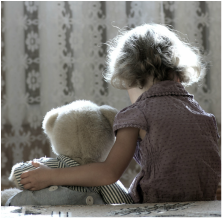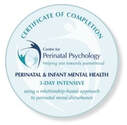 Have you ever wondered why some people seem to be brimming with self esteem while others can barely say a kind word about themselves? How do we get self esteem in the first place? Self esteem develops over time beginning in a secure early relationship with parents or caregivers. Attentive care givers who respond in timely and appropriate ways to the needs of the infant instil a sense in the child that everything will work out for them. This basic sense of trust in the world forms an abiding belief that they, by extension, are okay also. This is built on as the child grows into a toddler exploring the world and returning to a safe base where a parent reflects back the child’s joy in his or her discoveries. Basically the parent 'sees' the child and mirrors back what they sense the child is experiencing reinforcing to the child that they are worthwhile and important. Of course there are many things that can happen as the child grows up that can damage this basic sense just as there are many experiences that can encourage it, but the basic sense of “I am okay” starts very early in the child’s life and is built upon throughout his or her life. Some parents are good at working out what their baby needs and meeting the whims of their toddler, others are not so good.But we also have to consider the child in this picture. Babies are not blank slates. They come into the world with their own temperaments; sometimes they are easy to read and other times they cry and cry and parents never know why. In addition some children are temperamentally disposed toward a happy outlook on life and their outgoing disposition fosters positive feedback from the world, while other children are introverted or anxious by nature and have difficulty with feeling safe and trusting.  However, childhood self esteem doesn’t always translate exactly into adult self esteem many things can happen along the way to negate the gains of early childhood. For example, bullying at school, tragedy’s such as loosing a beloved relative or being involved in other traumatic events. Many things can impact our sense of trust in the world and trust in ourselves as good people. Many self esteem movements suggest faking it until you make it might work. Other systems suggest mimicking people you want to be like. Still others suggest you try to override your negative self image with positive affirmations. While some of these techniques might work for what I have found as the real way to achieve lasting and ever growing levels of self esteem is summarized below. 3 ways to get more Self Esteem1. Believe in what you achieve.
People with low self esteem are often the first to criticise themselves and the last to recognise the value of what they do. They aren’t useless people and can even be quite a high achievers but they never feel what they do is good enough. If you are one of these them try to see your achievements through the eyes of another and ask if you would be so harsh on anyone else. It all comes back to acknowledging yourself for what you do rather than denigrating it. Acknowledge your achievements no matter how small. 2. Know thyself. People with low self esteem often ignore themselves or spend time dwelling on certain negatively perceived traits they believe they have. What they can’t see is the parts of themselves that aren’t that bad. We all have many parts or sub-personalities within our major personality or ‘psyche’. When a part of our psyche is rejected and pushed out of our awareness (and often projected onto and seen in others) it becomes shadow and we loose all the qualities and energy that part possesses. It can be hard to accept or even recognise your dis-owned parts by yourself, simply because they are out of your awareness. This is where psychotherapy or group therapy can be the best way to get back in touch with the fulness of your self. By knowing who you are in all your human-ness you gain esteem because you are a more complete person with access to parts that you previously rejected. You don’t need to love yourself, just accept yourself, the good as well as the bad. 3. Find a cheerleader. Having someone who believes in you can help you believe in yourself, especially if you feel you missed out on this in the past. All change happens in the present, so no matter what happened in the past it is never too late to allow someone to reflect back your inner worth. Some people are lucky enough to find this in a partner but for others with low self esteem accepting love can be difficult. If you are someone who doesn’t believe in yourself as loveable and often acts in negative ways toward your partner then you may need to find someone more objective. Love relationships tend to stir up our old attachment wounds and partner becomes the target rather than the person who could help. Therapists, pastors or indirect older relatives can often model good parenting. What you need is objective but caring support for your growth and a safe space to vent your inner most thoughts without shame or repercussion. Whatever path you choose to better self esteem remember, it is never too late to start seeing yourself for the beautiful human you truly are. You are worthing simply because you draw breath. Posts regarding integrative medicine, human behaviour, psychotherapy, gestalt therapy, bio-chemical disorders; pyrrole, methylation, copper and zinc imbalances, child behaviour, family relationships, parenting.
1 Comment
Rashad
22/4/2019 02:33:33 am
Hi, very nice website, cheers!
Reply
Leave a Reply. |
AuthorClarissa Mosley Categories
All
Archives
November 2022
|
 RSS Feed
RSS Feed



